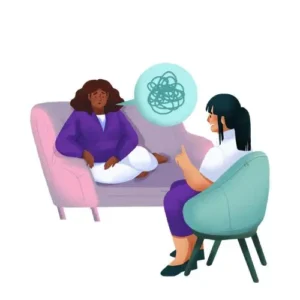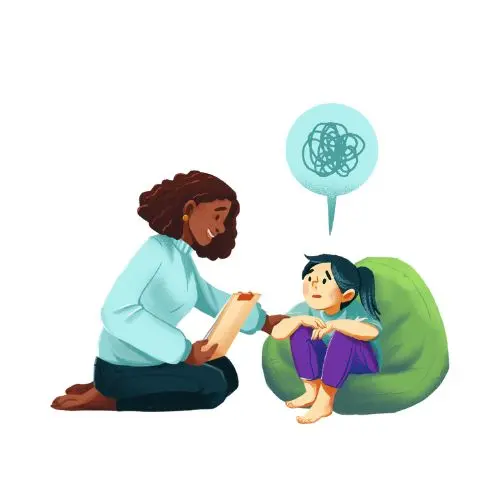The Importance of Maintaining Good Mental Health
Mental health is as important as physical health but does not receive the attention it deserves. The ability to think straight, work productively, maintain good relationships, and adapt to change and stress is possible because of good mental health. However, most people experience some mental health problems at some point in their lives due to various factors. This article highlights the significance of maintaining good mental health and tips on achieving that.
Mental Health Statistics in the United States
- 1 in 5 U.S. adults experience mental illness in a given year
- 50% of all lifetime mental illness begins by age 14, and 75% by age 24
- Major depression is one of the most common mental disorders, affecting over 16 million U.S. adults
- Anxiety disorders are the most common mental illness in the U.S., affecting 40 million adults aged 18+
- Nearly 11% of adults aged 18-25 have seriously considered suicide each year
- Suicide is the 2nd leading cause of death among people aged 10-34
- Good Mental Health Allows Us to Thrive
As the numbers reveal, Mental health disorders are very common. However, most people realize that good mental health is crucial in life to live a life rather than just surviving. The World Health Organization defines good mental health as “a state of well-being in which an individual realizes his or her own abilities, can cope with the normal stresses of life, can work productively and is able to make a contribution to his or her community.”
A tendency to flourish-good mental health is to feel happy and fulfilled, overcome obstacles, maintain healthy relationships, be productive at school or work, and participate in community and civic activities. When our mental health is less than optimal, it becomes hard to live life to the fullest. Maintaining good mental health enables one to be active, engaged, and meaningful. This is vital for both general well-being and success in life.
Factors that Impact Mental Health

Various factors can impact our mental health positively or negatively at different points in life. Some common influencers include:
- Biological factors such as genetics and chemical imbalances in the brain
- Life experiences like trauma, abuse, neglect, loss of a loved one
- Stress from work, school, relationships, health, finances, or everyday demands
- Substance use or addiction issues
- Lack of social support from family and friends
- Poverty or low socioeconomic status
- Discrimination due to gender, race, sexual orientation, disability status
- Major life changes like divorce, job loss, moving, retirement
- Physical health issues and chronic pain conditions
The good news is that many mental health issues are treatable, and we can take proactive steps to boost resilience against challenges to our mental well-being.
How to Maintain Good Mental Health

Here are some effective strategies for maintaining good mental health:
Practice Self-Care Daily
For everyone, self-care is unique, but it satisfies daily needs through healthy habits. Be sure to get at least 7-9 hours of sleep, eat a healthy meal, hydrate properly, exercise adequately, take downtime when necessary, and engage in what brings happiness to your heart. Self-care supports stress reduction and general mental well-being.
Build a Strong Support System
Having people around you who care and want the best for you contributes to good mental health. Pursue deep relationships through meaningful time with friends and family, community groups, and volunteering. Do not isolate during trying times-get help.
Learn to Manage Stress Effectively
We all have to face stress at some point, but chronic stress is a significant detractor to mental health. Practice relaxation techniques by engaging in deep breathing, meditation, yoga, or journaling. Learn to say no and prioritize tasks when feeling overwhelmed. Proper stress management is the ace to fending off the demands of life.
Seek Professional Help If Needed
While lifestyle adjustments can work to alleviate most of the more benign forms of mental health disorders, most will require medical intervention from a mental health professional. If your symptoms do not remit and interfere with your ability to function in everyday life, talk to your doctor for an evaluation and specialist referrals to see a therapist, psychologist, or psychiatrist. Help is never too far away.
Challenge Unhelpful Thought Patterns
In that regard, one cannot think wrongly and be healthy mentally. Pay attention to more than normal negative thoughts and challenge them through techniques from the cognitive behavioral approach. Substitute with balanced points of view. Optimism builds resiliency.
Stay Active and Engaged in Meaningful Activities
Fill life with meaningful and enjoyable activities beyond work and responsibility, volunteering, classes, sports teams, hobbies, nature-based activities, or creative pursuits. Activity counters both depression and anxiety.
Additional Tips for Maintaining Mental Wellness
Some other important strategies include adequate Vitamin D obtained from sunshine, alcohol and caffeine use, hydration, fewer nocturnal uses of screen-based devices, gratitude, religious or spiritual practice if applicable, managing finances properly, and personal growth and development. Such lifestyle choices and coping skills comprise the core of the holistic approach to mental well-being.
In this case, people can survive adversities if they are given a chance to thrive. Almost everyone can keep his or her mental health proper if he or she commits to it and remains in touch with himself or herself. Never forget that you should find professional help if the solutions with nature are not working or your symptoms worsen. Proper mental health deserves a daily priority.
Conclusion
Mental health impacts all aspects of life just as much as physical health. Positive mental health is the ability to cope, thrive, and attain one’s full potential; everyone requires it to reach their full potential. Although heredity and life experiences contribute to the shaping of mental wellness, lifestyle strategies make a person resilient to mental illness. It is well-documented that self-care, strong support networks, effective stressor management, meaningful involvement, and professional help when needed allow individuals and communities to thrive. This basic requirement for optimal functioning is epitomized in the truism, “good mental health is the ability to thrive despite adversities.”.

